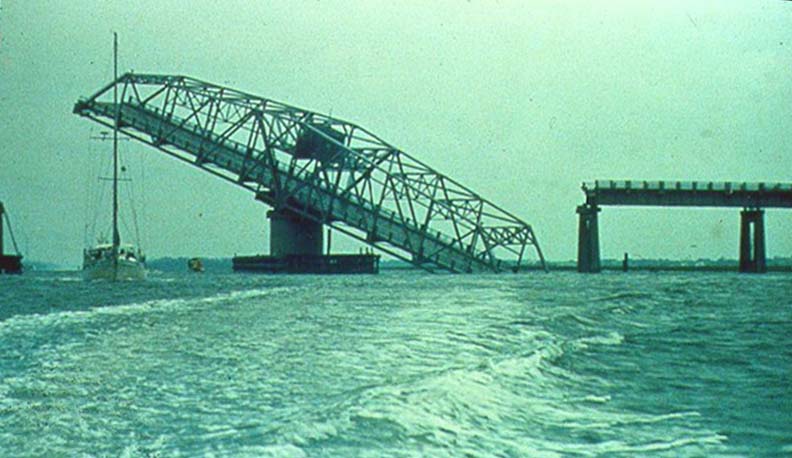I’ve posted before about Henry Petroski’s first book, To Engineer Is Human, which I love. It’s the one that made crystal for a non-engineer like myself that building bridges and buildings is not only a matter of science but also of best guesses. All these years after that 1985 volume–and with many books in between–Petroski has published a sequel of sorts, To Forgive Design, which examines, among other things, how the lessons of the past are no match for climate change of today and tomorrow. From “Collapse and Crash,” by Bill McKibben, in the New York Review of Books:
“But what if, in fact, the old war stories are becoming obsolete? The engineer, like the insurance agent, is hampered by the fact that his skill depends on the earth behaving in the future as it has in the past. As Petroski writes,
Since it is future failure that is at issue, the only sure way to test our hypotheses about its nature and magnitude is to look backward at failures that have occurred historically. Indeed, we predict that the probability of occurrence for a certain event, such as a hundred-year storm, is such and such a percentage, because all other things being equal, that has been the actual experience contained in the historical meteorological record.
That record, however, is now shattered. In the course of Petroski’s lifetime, and all of ours, we’ve left behind the Holocene, the ten-thousand-year period of benign climatic stability that marked the rise of human civilization. We’ve raised the global temperature about a degree so far, but a better way of thinking about it is: we’ve amped up the amount of energy trapped in our narrow envelope of atmosphere, and hence every process that feeds off that energy is now accelerating. For instance, this piece of simple physics: warm air holds more water vapor than cold. Already we’ve increased moisture in the atmosphere by about 4 percent on average, thus increasing the danger both of drought, because heat is evaporating more surface water, and of flood, because evaporated water must eventually come down as rain. And those loaded dice are doing great damage. The federal government spent more money last year repairing the damage from extreme weather than it did on education.”
Tags: Bill McKibben, Henry Petroski

